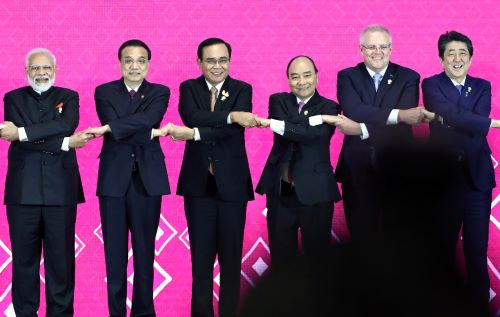The 2% hike in the national sales tax instituted October 1 by the government of prime minister Abe Shinzo was as bad as economists predicted, causing retail sales to fall at their fastest pace in close to five years.
Retail sales plummeted 7.1% in October year-on-year due to weak consumer demand for big-ticket items such as cars, as shown by data from the Ministry of Economy, Trade, and Industry. The dramatic drop followed a 9.2 percent surge in September as consumers rushed to buy at the old prices, and compares badly to market expectations of a 4.4% drop.
The ministry said the October figure is the biggest decline in the retail trade since March 2015. The biggest losers were machinery and equipment (-15.0% from 37.8%), general merchandise (-13.2% from 14.0%), motor vehicles (-17.0% from 16.9%) and fuel (-13.0% from -0.1%). Department store sales were among the hardest hit.
The drop was the biggest since a 9.7% fall in March 2015 and was worse than a 4.4% decline predicted by economists in a Reuters poll. On a monthly basis, retail sales plunged 14.4% in October after an upwardly revised 7.2% rise, falling by the steepest rate ever.
Year-on-year retail sales in Japan averaged 4.50% from 1971 until 2019. It hit an all-time high of 36.50% in January 1979 and a record low of -14.30% in March 1998.
The October retreat was also far larger than the declines reported after the last two times the sales tax was raised. This tells economists other factors might be throttling consumption. Sales fell 4.3% in April 2014, the month of the previous tax hike.
"The fall in sales was slightly larger than the 13.7% m/m plunge which followed both the 1997 and 2014 sales tax hikes," wrote said Tom Learmouth, Japan economist at Capital Economics, in a note to clients.
Abe increased the nationwide sales tax to 10% from 8% in a desperate bid to fix the developed world's heaviest public debt burden. This mammoth government debt load amounted to $10 trillion in 2018.
This incredible number is due in part to Japan's negative interest rate regime exacerbated by Abenomics and its "three arrows" of monetary easing, fiscal stimulus, and structural reforms. Japan's public debt is more twice the size of the country's gross domestic product, which stood at $4.97 trillion in 2018.
Economists have stridently warned Abe the sales hike will batter Japan's consumer-driven economy by crimping spending. The tax hike, while modest and postponed twice before, will leave Japan without a growth driver as it struggles against the ill effects of Trump's protectionist trade war.






